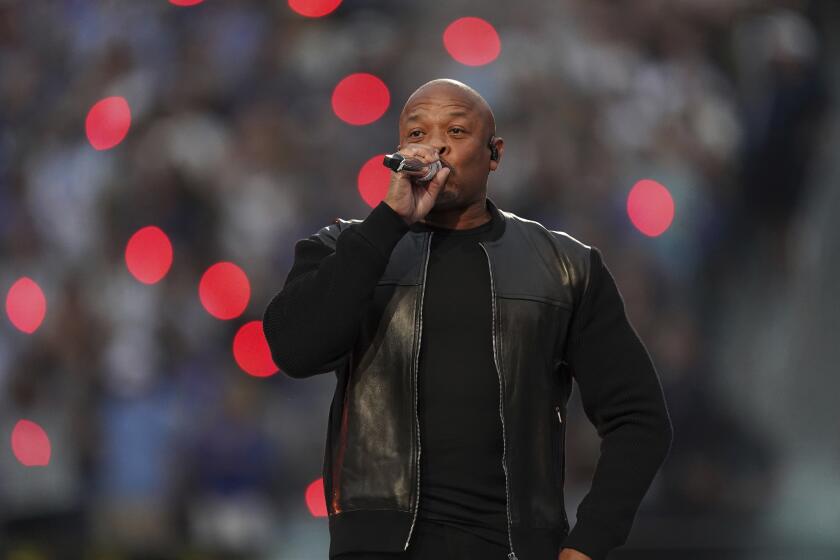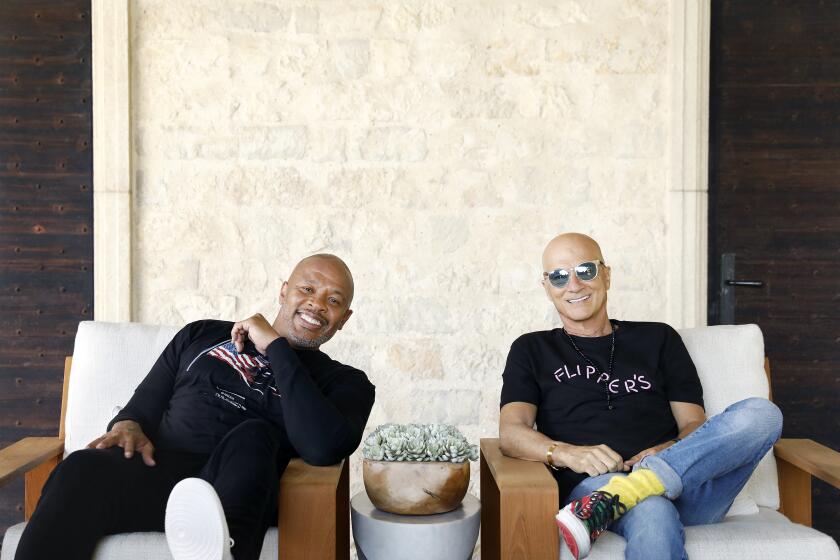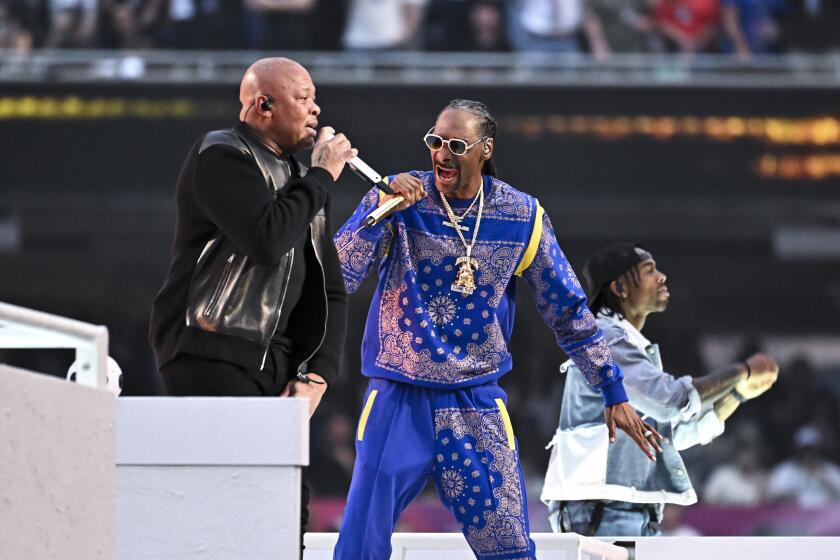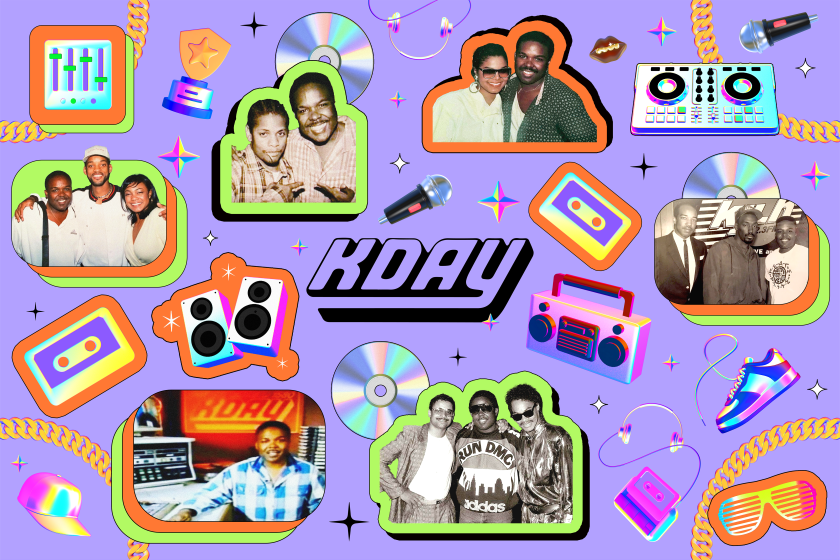Dr. Dre says he had three strokes when hospitalized for brain aneurysm
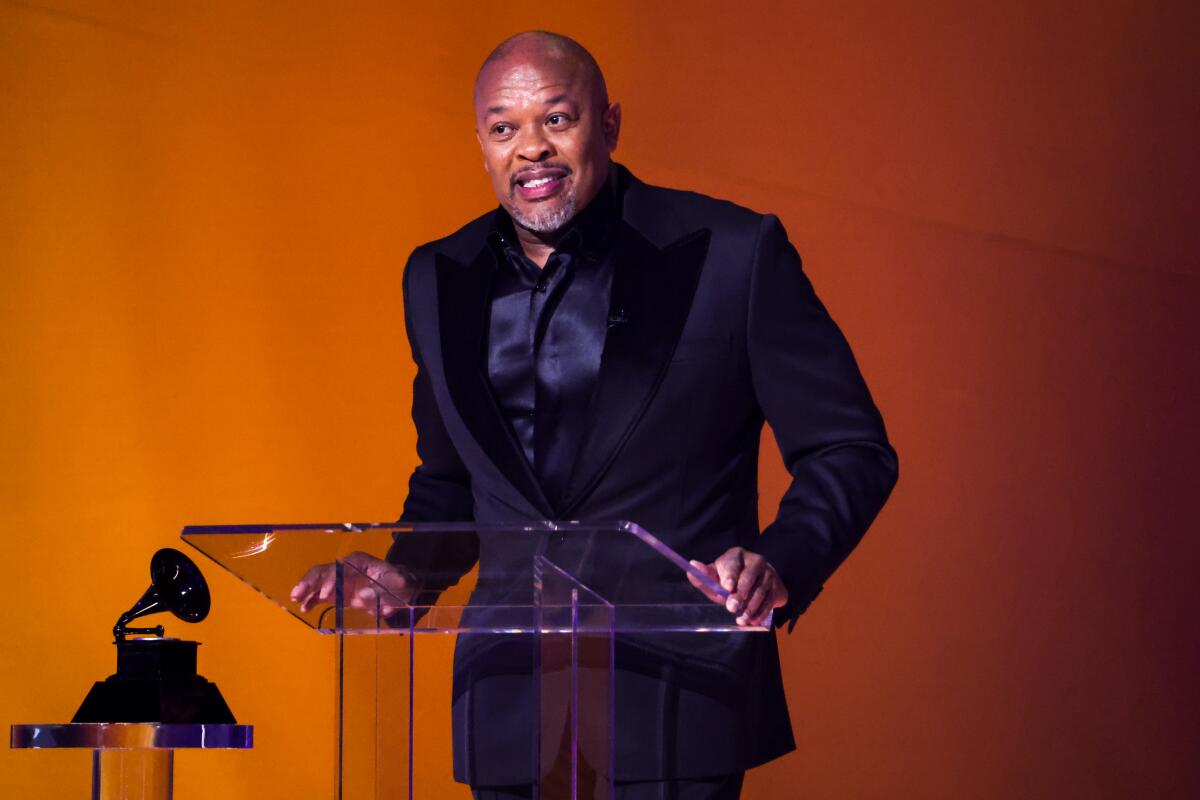
Dr. Dre’s hospitalization for a brain aneurysm in 2021 was a harrowing experience that included three strokes over a two-week period, the legendary producer recently said.
“It’s just something that you can’t control that just happens, and during those two weeks, I had three strokes,” he said on the March 14 episode of SiriusXM’s podcast “This Life of Mine ... With James Corden.”
Rap icon Dr. Dre shared in a recent interview that his doctors invited loved ones to say their goodbyes to him following his health scare last year.
The “Next Episode” and “Nuthin’ But a ‘G’ Thang” rapper also noted that he initially dismissed his first symptom: pain behind his ear.
“I just woke up, and I felt something right behind my right ear, and I almost felt like the worst pain I ever felt, and I got up and I went on about my day and I thought that I could just lay down and take a nap,” the hip-hop icon recalled.
“My son had a female friend that was there and was like, ‘No, we need to take you to the hospital,’ so they took me to urgent care and I got to urgent care and they were like, ‘No, this is serious.’ Next thing you know, I’m blacking out. “
The new magnet high school will be based at Audubon Middle School. The campus in Leimert Park has experienced a sharp enrollment decline, as have nearby high schools.
The Compton-born philanthropist and media mogul, whose real name is Andre Young, said he was in and out of consciousness and ended up in an ICU for two weeks; there, he heard doctors telling him, “You don’t know how lucky you are.” He added that he didn’t realize that he had hypertension because he’d always taken care of his health. (He previously told The Times that he “never saw that coming.”)
“I asked questions like, ‘What could I have done to prevent this?’ and nobody could give me an answer. I had no idea that I had high blood pressure or anything like that because I’m on my health s—,” he told Corden. “I’m lifting weights, I’m running, I’m doing everything I can to keep myself healthy. I said, ‘Would that have prevented it if I had worked out a little bit harder or ate different or something like that?’ It’s like, no. That’s hereditary. High blood pressure in Black men, that’s just what it is. They call it the silent killer. You just have no idea, so you know, you have to keep your s— checked.”
According to the Mayo Clinic, brain aneurysms form and grow because blood flowing through a vessel puts pressure on a weak area of its wall, which can increase the size of the aneurysm. If the aneurysm leaks or ruptures, it causes bleeding in the brain, known as a hemorrhagic stroke.
Dre did not elaborate on the type of strokes he had or their effects. But the experience, he said, didn’t necessarily result in a significant change to what he had been doing or how he wanted to live his life.
Dre was joined by Snoop Dogg, Kendrick Lamar, Mary J. Blige, Eminem and guest 50 Cent in one of the great halftime shows of all time.
“I’m not saying, ‘OK, I’m just gonna go f— crazy because who knows if the lights are gonna come out tomorrow,’ I don’t think about it like that,” he said. “I just think it was something that just happened to me. It definitely makes you appreciate being alive. That’s for sure.
“When you go through that situation, it’s crazy. Especially when I was on my way home from the hospital because possibly, that couldn’t have happened. I don’t know. It’s crazy, so now knowing that I had no control over that. It’s just something that could happen out of the blue. You wake up and you go, ‘S—. OK. I’m here.”
The rapper, who rose to fame with rap group N.W.A. and went on to become a top producer and co-founder of Beats Electronics, previously said that his doctors didn’t think he was going to survive the ordeal.
“I’m at Cedars-Sinai hospital and they weren’t allowing anybody to come up, meaning visitors or family or anything like that, because of COVID, but they allowed my family to come in,” he said on the “Workout the Doubt” podcast in 2022. “I found out later they called them up so they could say their last goodbyes because they thought I was outta here.”
Dre said he “didn’t know it was that serious” at the time but remembered the constant check-ins and treatments he received during recovery.
In 1983, KDAY-AM became the first radio station to play wall-to-wall rap music, thanks to an ambitious new music director and some soon-to-be famous DJs.
The multiple Grammy Award winner has rebounded since the health crisis, performing with fellow hip-hop legends just over a year later during his hometown Super Bowl LVI Halftime Show and receiving the inaugural Dr. Dre Global Impact Award at the 2023 Grammy Awards.
And, on Tuesday, he’s set to receive the 2,775th star on the Hollywood Walk of Fame. Legendary radio host Big Boy will emcee the ceremony and Dre’s longtime collaborator Snoop Dogg and fellow music impresario Jimmy Iovine will deliver remarks.
More to Read
The biggest entertainment stories
Get our big stories about Hollywood, film, television, music, arts, culture and more right in your inbox as soon as they publish.
You may occasionally receive promotional content from the Los Angeles Times.
